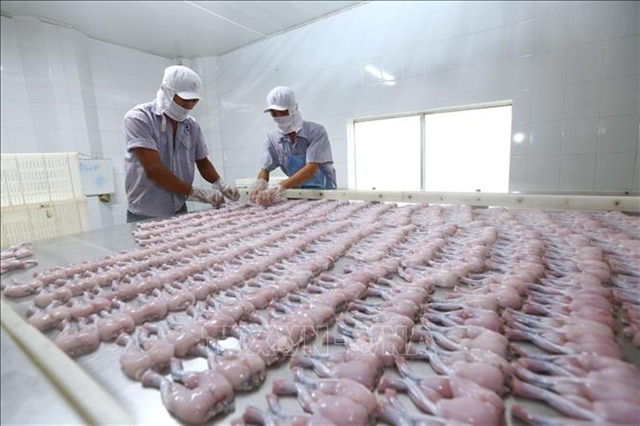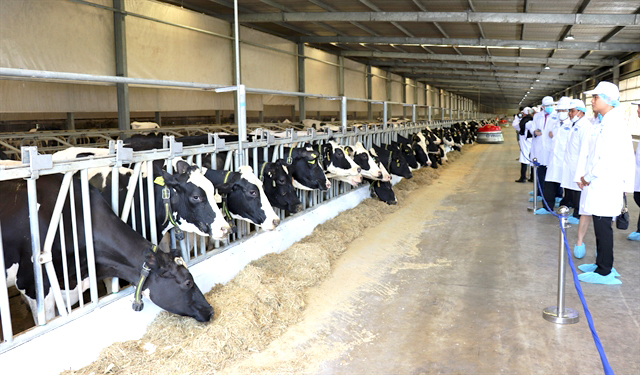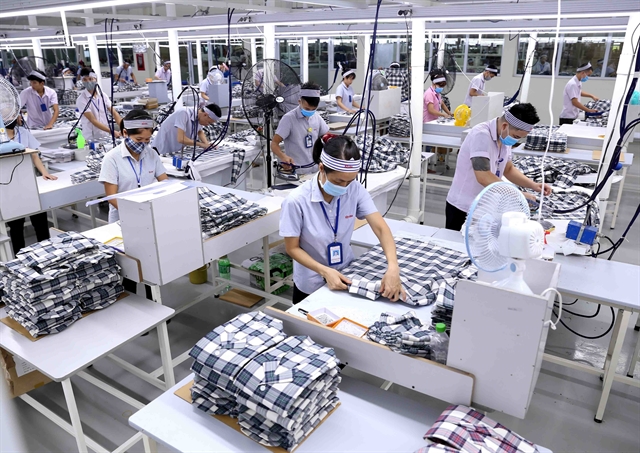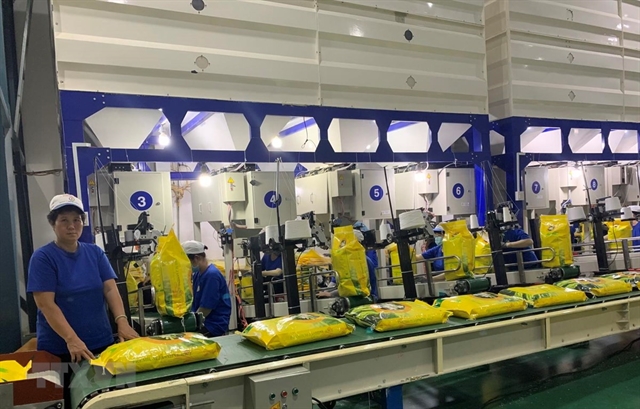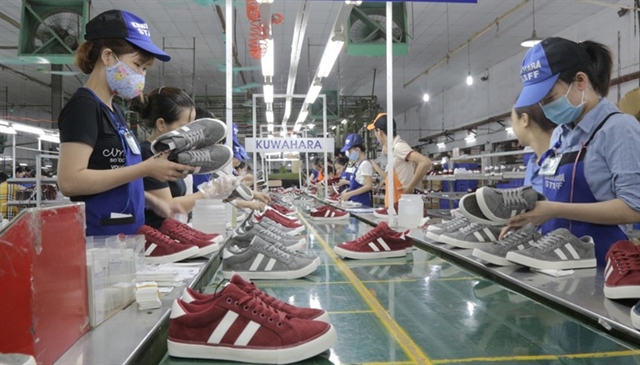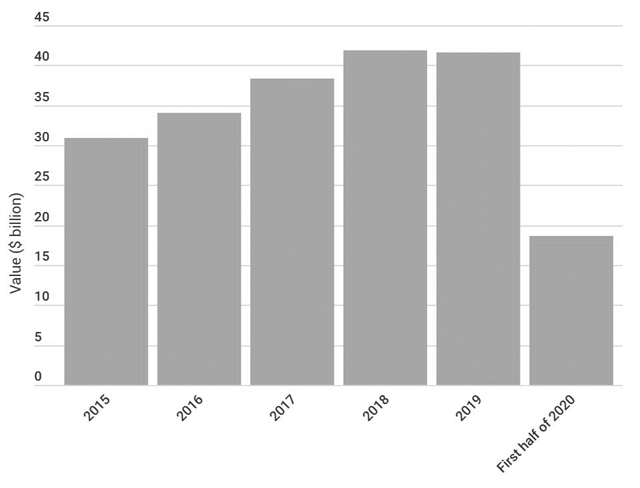
HÀ NỘI — Manufacturing firms are increasingly focusing on offering quality childcare services to ensure they retain workers.
“Without a factory-based childcare centre, we would lose a lot of female workers who could not work due to the difficulties of raising their children in the early stages,” said Đinh Sỹ Phúc, head of the Labour Union Association of Taekwang Vina Company.
The export-oriented manufacturing sector has been a key driver of economic growth and job creation in Việt Nam, particularly for women who make up more than 80 per cent of the sector’s workforce. While the global COVID-19 pandemic has impacted demand, the manufacturing industry is well-positioned for recovery and growth, if workers can be retained.
With 35,000 employees, Taekwang Vina Company based in Đồng Nai Province makes shoes for export and assembles products for brands like Nike.
“It is of great effectiveness to attract female workers with the child-care centre and the childcare policies," Phúc told Việt Nam News.
The firm’s centre was built at a cost of VND50 billion (US$2.15 million) on a green area inside the industrial zone (IZ) of Bien Hoa and has space for up to 500 children from three to six years old. As the centre also has extra-hour nursing available, Phúc says the women feel secure leaving their children there to focus on their work.
He recalled the case of a disabled couple who have been working for the firm for more than 10 years and had a baby five years ago.
"It was a great opportunity for them as our centre opened when their daughter was at kindergarten age. They could bring her to work and bring her back with them after work.”
“If not at least one of them would have to stay home or send their daughter back to their hometown 500km from the factory and we would have lost one of our best workers," he added.
Last week IFC, a member of the World Bank Group, released a report that considered providing childcare for employees has a positive impact on Vietnamese businesses, improving recruitment, retention, and worker productivity.
The IFC report 'Tackling Childcare: The Business Case for Employer-Supported Childcare in Vietnam' said due to the projected contraction of the nation’s workforce by five per cent by 2040 due to an ageing population, the challenge for manufacturers will be to attract and retain quality workers
The report said offering childcare support to working parents can be part of the solution.
Kyle Kelhofer, IFC Country Manager for Vietnam, Cambodia, and Laos told Việt Nam News: "The research reveals a gap between the need for and the supply of childcare in Viet Nam. Employers can play a role in addressing this gap, not just by directly providing care, but by creating family-friendly workplaces that help employees combine productive work with parenting."
“When schools and daycares closed during the COVID-19 pandemic, it became clear how closely linked productivity is to childcare. We cannot forget that as we head into recovery from the COVID-19 crisis. There is an opportunity for businesses in Viet Nam to gain a competitive edge and differentiate themselves by introducing childcare support for employees," he added.
With six case studies of companies with nearly 100,000 workers in the garment and footwear sector offering various childcare options, from on-site childcare to monthly childcare allowances, the report found they all benefited from a reduction in employee turnover, improved recruitment and increased productivity.
Eric Lee, Human Resources Manager of Taekwang Vina, said: “An average unplanned absenteeism rate of 0.6 per cent across the 33,000-people workforce costs the company close to $1 million a year. Opening a kindergarten has helped our factories cut unplanned absenteeism by 20 per cent. We have also seen a significant decrease in monthly worker turnover compared to our other factory without a kindergarten.”
“The benefits certainly outweigh the challenges and we believe childcare is an important part of the company’s growth strategy," he said.
IFC Gender Program Lead for EAP Amy Louinstra told Việt Nam News: “There is an impressive reduction in staff turnover among working parents at workplaces offering childcare support compared to at one without it. The difference could be nearly 200 per cent. "
With many factories facing the risk of losing qualified workers, Louinstra said: “Lack of childcare is often the single most important reason for workers, especially female workers, leave their job.”
“In addition to on-site childcare facilities, employers can offer other, less resource-intensive childcare support options, such as flexible work hours, an emergency backup care, summer programmes for children, extended paternity and maternity leave or a breastfeeding lactation room for female workers," she said.
“Manufacturers can have a better relationship with clients who appreciate their supplying factories to have childcare for their employees,” she said, adding, "Other labour-intensive sectors like banking and tourism can also consider having childcare support and family-oriented policies as part of what can make them good employers and good businesses."
The IFC official also said there was a chance for education centres to serve the demand of workers in the IZs across the country
“The private sector, which accounts for about 90 per cent of jobs in developing countries, is a critical engine for creating more and better jobs. They can work with the public to create markets for childcare support.”
Louinstra said that while Việt Nam already spends more money than most of its neighbouring countries in ASEAN on early childhood care and development, a lot more could still be done.
According to data, the current public provision of kindergarten, preschool and care is about 20 per cent of market demand.
“So there is a lot more room to expand the supply of quality and affordable childcare and preschool,” said Louinstra.
“There has to be a team effort in the childcare support from employers, Government, parents and teachers. The Government can look at incentivising private sector participation – both by having more employers providing childcare and promoting larger-scale private-sector childcare businesses. In other countries, we can see franchise models or other larger-scale childcare provision moving into cities and industrial zones.”
“There is still a gap between men and women in Viet Nam in labour participation of about 10 percentage points. Closing the gap will help contribute billions of dollars more to the economy," she said.
“Helping female workers with childcare and elderly-care responsibilities will enable them to work more productively, get better jobs and achieve better positions, including participation in leadership.” — VNS




